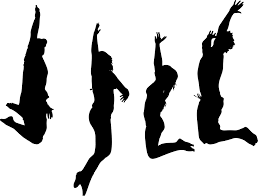
What did you want to be when you were a child? Did you have any trouble answering that question when someone would ask? Did the answer change from time to time as you grew older? As our interests develop and expand, we are likely to have different aspirations. For example, when it comes time to actually make a decision, as in when you have to choose a college and a major, or when you find yourself looking for a career. Some people never fully decide on anything and just follow where life’s circumstances lead them. However, there are those who have the talent and ability to bring together a combination of occupations or activities that can sustain them financially and fulfill them emotionally. These are the fortunate ones–not to say they don’t deserve the wonderful life they’ve designed for themselves. And if they manage to pull this off in the world of the arts, they have found the Shangri-la of vocationdom, to coin a word.
I have a theory that everyone knows what they want to do. Some just haven’t thought of it yet. I firmly believe our lives have a purpose. I can’t prove it, nor can it be proven wrong. So, I’m just another guy with an opinion. For me, it’s a conviction…a knowing that I can’t unknow. But I digress. It’s a discussion for another day. The focus should remain on what we want to do with our lives. My experience with regard to having a chosen profession, one I have written in my bio and my profiles relating to my work as a writer, is that I knew with certainty I wanted to be an author at the age of six. As soon as I could write, I knew.
Wanting to do something, especially as it pertains to one’s life work, is completely different from actually making it happen. Having a craving for pizza is easily and quickly satisfied. Someone will even promptly deliver it to your door! Turning a long term dream into reality takes persistence, planning, information and a little guidance here and there. Your path is fraught with pitfalls and distractions. I became enamored with baseball, girls and popularity. I still wanted to write and I did complete some short stories in my youth, but it was so much easier to involve myself in sports, dancing and getting laughs than plotting a viable course that required follow-through in the classroom. 
But what about the vast number of human beings that don’t awaken to a dream of their life’s calling? They may grow up through 12 years of education without any subject exciting their minds to action or even ideas of future immersion in any way. I cannot accept that most children don’t find some aspects of this sparkling and shiny world worthy of their sustained active interest that develops into a way of life. Are they overstimulated into apathy by the endless sights and sounds of modern technology? Maybe for some, but the absence of realization of an occupational ideal has been happening for who knows how long–definitely longer than recent generations. Perhaps for these there should be a specific course of study aimed at discovery of that which ignites a passion for a line of work, whether it’s medicine, labor or service. Socially, many more factors than I can address here potentially complicate the matter. Rise above if you can.
I don’t care how old you are. You’ve probably heard the saying, “Today is the first day of the rest of my life.” Whether you have 80 years to go or just one more day, it behooves you to live it to the fullest. To find a fulfilling way to earn your subsistence or simply to help others moves you in that direction. Determining what will give you joy and a sense of purpose is key. I draw now from a wonderful book by Carol Adrienne, The Purpose of Your Life. I’ve isolated one small exercise that she suggests and I’m paraphrasing. As a start, look around your world and what’s in it. What do you consider most valuable and what you want to have in your life? Draw them or list them if you prefer. What do you want to let go from your life? Draw those or list them if you prefer. Write a word or a few to show what value each of those items listed represents to you. Ms. Adrienne points out that you can consciously align yourself with your values to get in touch with how to live your life with purpose. I would suggest using the same exercise to align yourself with an occupation that offers you the most fulfillment.
May your search bring you great favor which in turn benefits all with whom you work.



